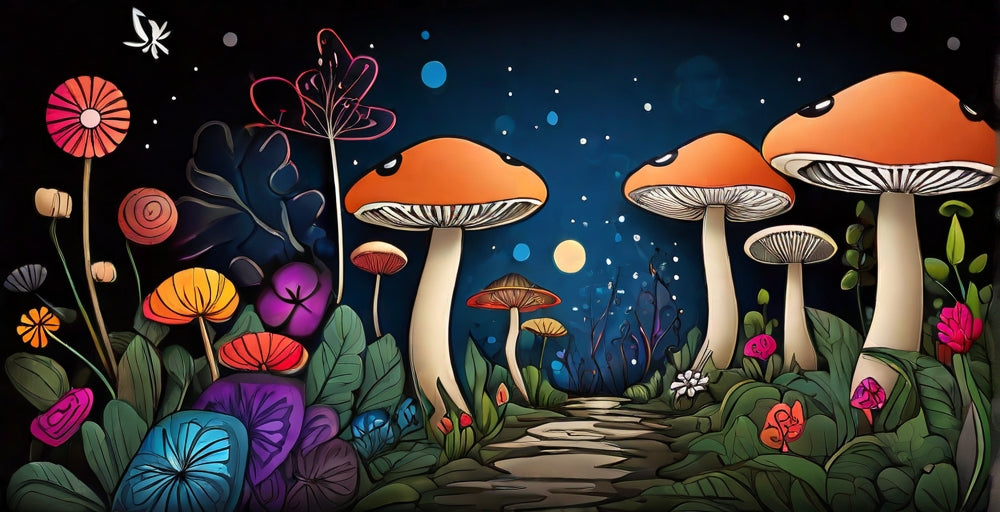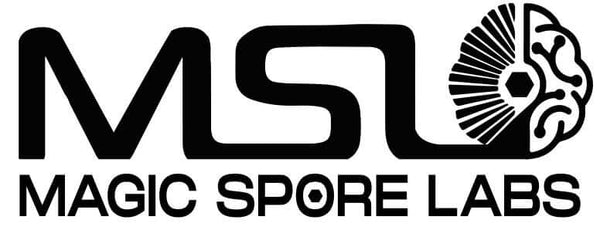
Can Mushrooms Grow In Liquid Culture?
Share
Welcome, mycology enthusiasts and curious minds! Today, we're diving into a fascinating topic in the world of fungi: the growth of mushrooms in liquid culture. If you've ever wondered about this unique cultivation method, you're in the right place. Let's explore the science behind it, the processes involved, and the potential applications, all without delving into the specifics of growing mushrooms, their effects, or making any medical claims.
The Science of Liquid Culture in Mushroom Cultivation
At its core, the concept of liquid culture involves nurturing mycelium, the vegetative part of a fungus, in a nutrient-rich liquid solution. This method contrasts with traditional mushroom cultivation, which typically uses solid substrates like grain or wood. In liquid culture, mycelium grows throughout the liquid, absorbing nutrients and expanding rapidly.
Why Choose Liquid Culture?
Liquid culture offers several benefits in mycological studies and mushroom cultivation:
- Speed: Liquid culture can accelerate mycelium growth compared to solid substrates. This rapid expansion is particularly beneficial for research and commercial cultivation.
- Sterility: Working with liquid cultures reduces the risk of contamination, a common challenge in mushroom cultivation. A sterile environment is easier to maintain with liquid than with solid media.
- Scalability: Cultivating mycelium in liquid allows for easy scaling, crucial for both laboratory research and large-scale commercial operations.
- Versatility: Liquid cultures can be used to inoculate various substrates, making it a flexible tool for different cultivation methods.
The Process of Growing Mycelium in Liquid Culture
The process of cultivating mycelium in liquid culture involves several key steps:
- Preparation of the Liquid Medium: A nutrient-rich liquid medium is prepared, often containing sugars, minerals, and other essential nutrients for mycelial growth.
- Inoculation: The liquid medium is inoculated with mycelium, either from spore syringes or from a previously established mycelium culture.
- Incubation: The inoculated liquid culture is incubated at an optimal temperature for mycelium growth. During this phase, the mycelium expands throughout the liquid.
- Harvesting: Once the mycelium has fully colonized the liquid, it's ready to be used for further research or to inoculate substrates for mushroom cultivation.

Potential Applications of Liquid Culture in Mycology
Liquid culture finds its applications in various fields:
- Research: Scientists use liquid cultures to study mycelium growth, genetics, and the production of secondary metabolites.
- Biotechnology: The pharmaceutical and food industries explore the use of liquid cultures for producing valuable compounds found in mushrooms.
- Environmental Science: Mycology research in liquid culture contributes to understanding fungi's role in ecosystems and their potential in bioremediation.
A Specific Example: Psilocybe Cubensis
To illustrate the concept, let's consider Psilocybe Cubensis, a species of psychoactive mushroom. In the scientific community, this species is studied for its unique characteristics and growth patterns. In a controlled laboratory setting, researchers might use liquid culture to study the mycelium of Psilocybe Cubensis, observing its growth behavior and genetic traits. This research contributes to our understanding of fungal biology, without delving into the growth of mushrooms or discussing their effects.
Fastest Growing Cubensis Strains
In the realm of mycology research, scientists are interested in identifying the fastest growing cubensis strains. This information can be valuable for understanding the genetic factors that influence growth rates and could inform future studies on mushroom biology and genetics. It's important to note that this research is purely scientific and does not involve growing mushrooms for any other purpose.
Ethical and Legal Considerations
While discussing the scientific aspects of liquid culture and mycology, it's crucial to acknowledge the ethical and legal considerations. Researchers must adhere to strict guidelines and regulations when studying fungi, especially species like Psilocybe Cubensis. Compliance with legal requirements ensures that research is conducted responsibly and ethically.
The Role of Companies in Mycological Research
Companies like Magic Spores Labs contribute to the field of mycology by providing research-grade spores and cultivation supplies. These companies play a pivotal role in supporting scientific research, offering tools and resources for studying fungi in a legal and ethical manner.
Conclusion
The growth of mushrooms in liquid culture opens up exciting possibilities in the world of mycology. This cultivation method offers speed, scalability, and flexibility, making it an invaluable tool for scientific research. Whether it's studying the fastest-growing cubensis strains or exploring the biotechnological applications of fungi, liquid culture plays a significant role in advancing our understanding of these fascinating organisms.
